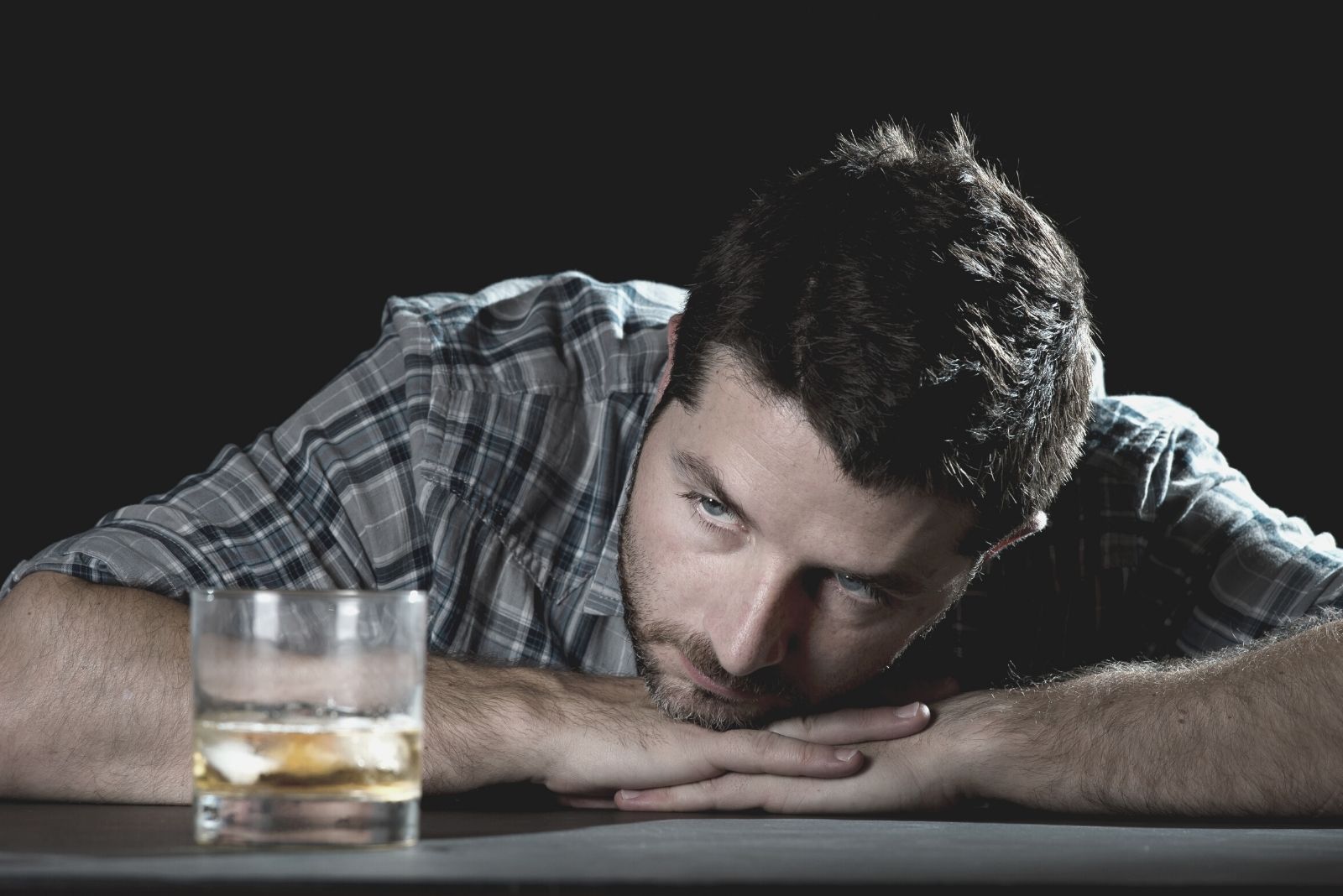10 Warning Signs You’re Dating An Alcoholic (And What You Can Do)
Is your loved one drinking more than they used to? Or, have you just started dating someone who always seems to be surrounded by alcoholic beverages?
Do you suspect that you might be dating an alcoholic?
Here’s the thing about alcohol. Not every single one who drinks has a drinking problem. Alcohol abuse is a process that develops gradually.
People often start drinking uncontrollably as a way to cope with their problems or whatever they’re going through at the moment.
Mental health issues, such as anxiety and depression, are other common reasons for excessive alcohol consumption.
Dating an alcoholic can be a real challenge that can affect both your mental and physical health. Even if your relationship is perfectly healthy and devoid of conflicts, dealing with a partner who has an alcohol problem can be really stressful.
That is why it is important to discover early signs of alcohol addiction, understand how it can impact your relationship, and learn how to help both your partner and yourself.
Are You Dating An Alcoholic? – 10 Signs Of An Alcohol Problem
They’re only/mostly interested in attending events where alcohol is available (or allowed)
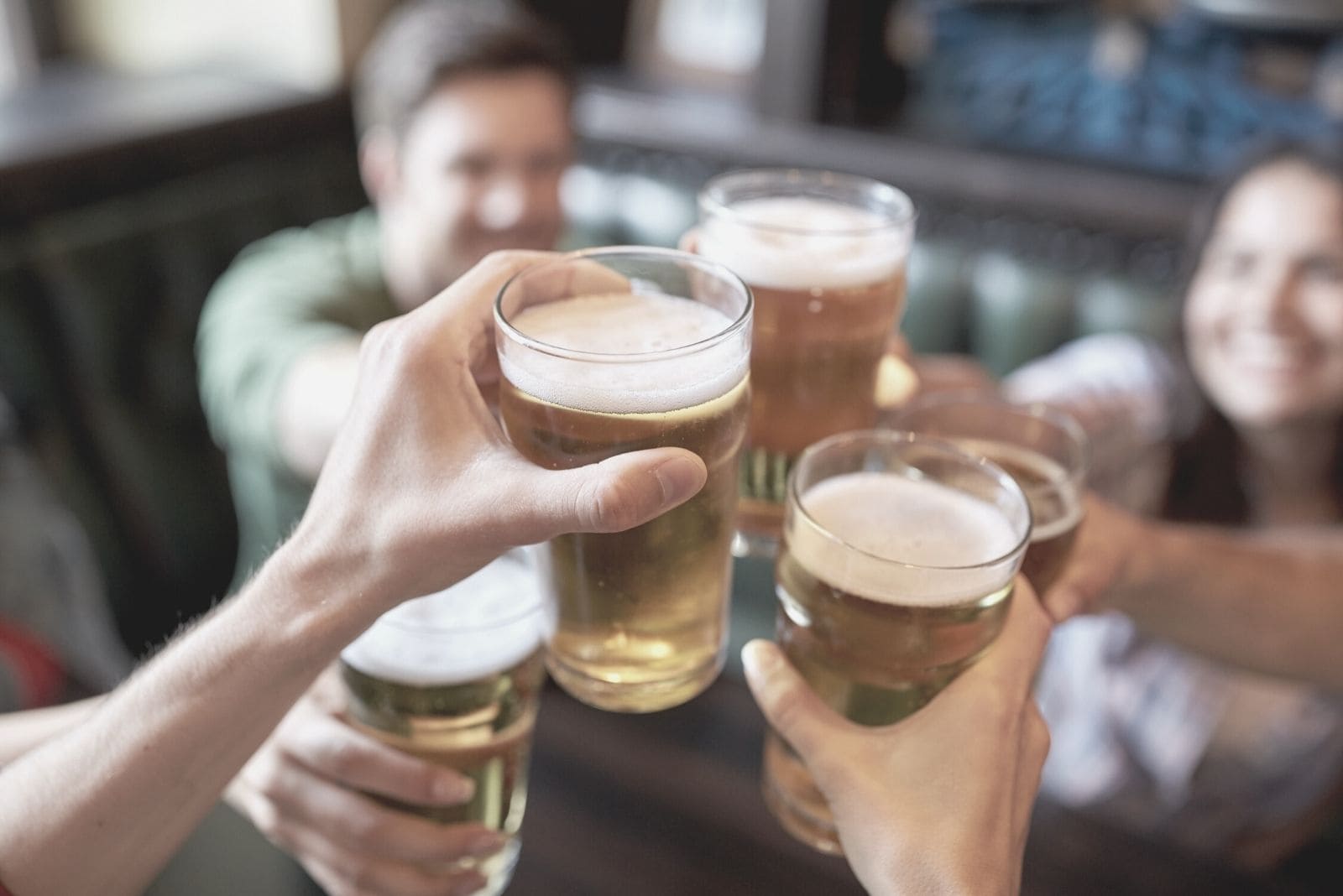
One of the biggest early signs of alcoholism is being interested only in attending events where alcoholic beverages are served.
If your partner is picky about visiting certain places, it could be because they are not allowed to drink there.
You know you’re dating an alcoholic if they are happiest around people who also have the same drinking habits. The same thing goes with drug addiction.
Those who have substance abuse problems will also be primarily interested in hanging out with others who are interested in the consumption of the same things as them.
Dating sucks, I know.
They use alcohol as a coping mechanism

Using alcohol as a coping mechanism is another sign of developing an alcohol use disorder. This means using alcohol to cope with different situations and emotions.
Usually, this type of person drinks when they’re feeling off, sad, or disappointed in order to forget about their problems and relieve stress. They also drink when they’re feeling happy and celebrating life.
Evidently, there are no rules or occasions when it comes to drinking.
Alcohol becomes the main pacifier that helps them deal with life’s challenges and boosts their mood when they’re feeling down.
They have developed a tolerance for alcohol

The only way to increase alcohol tolerance is by drinking on a regular basis. The more alcohol they consume, the more they WILL NEED to consume for the sake of achieving the same effects as before.
Have you noticed that they need to consume three or maybe ten times more alcohol than you in order to become tipsy?
While you’re feeling totally drunk, they still need more drinks to reach the same level as you.
If that is the case with you, then you know they have developed a tolerance for alcohol due to excessive drinking. This is often connected with being a high-functioning alcoholic.
This means that even if they drink too much during the weekend, they can still go to work the next day as if nothing happened.
Their mood and personality change when they’re drinking

When they’re not drinking, they might experience withdrawal symptoms like sweating, shaking, and mood swings. However, they don’t need to be totally intoxicated in order to suddenly change their mood and personality.
They might act reserved and shy before they start drinking and then transform into an aggressive and loud person. Or, they might shift from being sweet to abusive.
A sudden change in their behavior after a couple of drinks indicates that alcohol has taken its toll on them.
They can no longer control themselves because drinking has taken an active role in their life. Whenever you see them drinking, pay attention to that.
When they’re sober, they are difficult to communicate with

Dating an alcoholic man or woman can be really frustrating. One of the signs that they have a drinking problem is difficulty communicating with them when they’re sober.
You’ll notice that they have difficulty focusing on what you’re telling them, and also they feel irritated and kind of lost in their thoughts. This happens because they need a dose of alcohol.
When they’re sober, they are not themselves anymore because they find it hard to cope with everyday struggles and challenges without alcohol.
Even the most simple conversation can turn out to be a mission impossible when it comes to keeping a conversation going with them.
See also: Being The Daughter Of An Alcoholic Broke Me But It Also Made Me Stronger
They use every situation as an excuse to start drinking
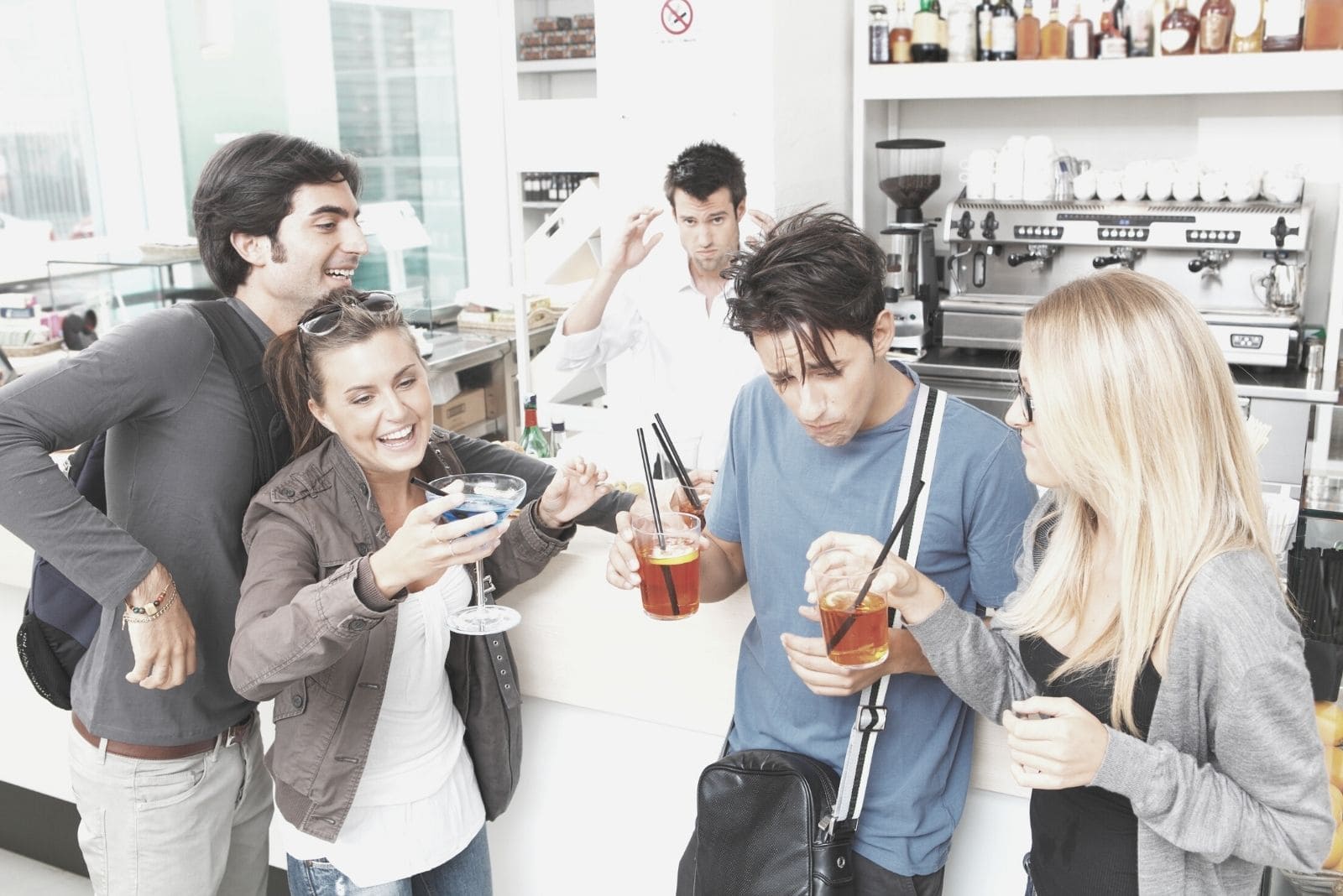
Celebrating graduation? Let’s drink! Having a bad day at work? Let’s drink. Feeling bored? Let’s drink.
If they see every single life situation as the perfect occasion to drink, then yes, they “might” have a drinking problem.
I’ve been thinking about all this a lot lately and I’ve realized that half of our addictions are greatly supported by the media. Do you know why?
Because alcohol is everywhere around us. It abounds on social media, TV, song lyrics, you name it.
Wherever you go, whatever you are listening to, chances are you will stumble upon alcohol being presented as the Holy Liquid that instantly fixes all problems and makes our lives easier.
We’re probably not aware of this, but we collect all this data and implement it into our daily lives. That is one of the reasons why one might use every situation as an excuse to start drinking.
They have experienced problems because of alcohol
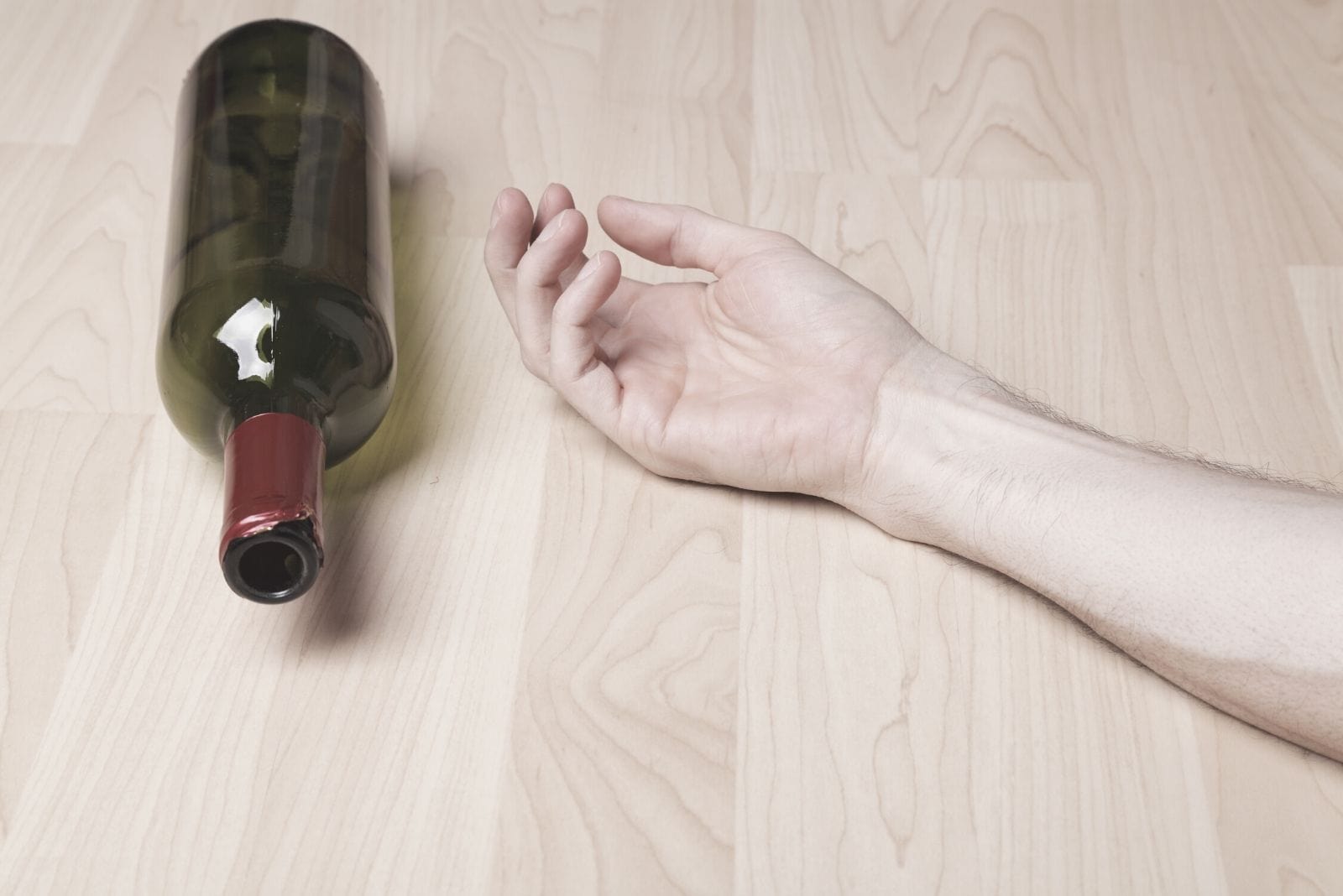
I’ve spent my entire childhood surrounded by neighbors with drinking problems.
They would torment their families, get fired frequently, embarrass themselves on a regular basis, and then do everything all over again.
A person who doesn’t have an alcohol problem won’t allow themselves to repeat the same mistakes and embarrassing situations due to alcohol.
They will understand that drinking is not a solution to their problems, but it is a problem in itself.
But, a person who has a drinking problem will not care about any of it. They will continue drinking despite the fact that their life is collapsing because of it.
Dating someone with an alcohol abuse problem is really hard, so remember that there’s no excuse for setting low relationship standards.
They are not picky about alcohol brands
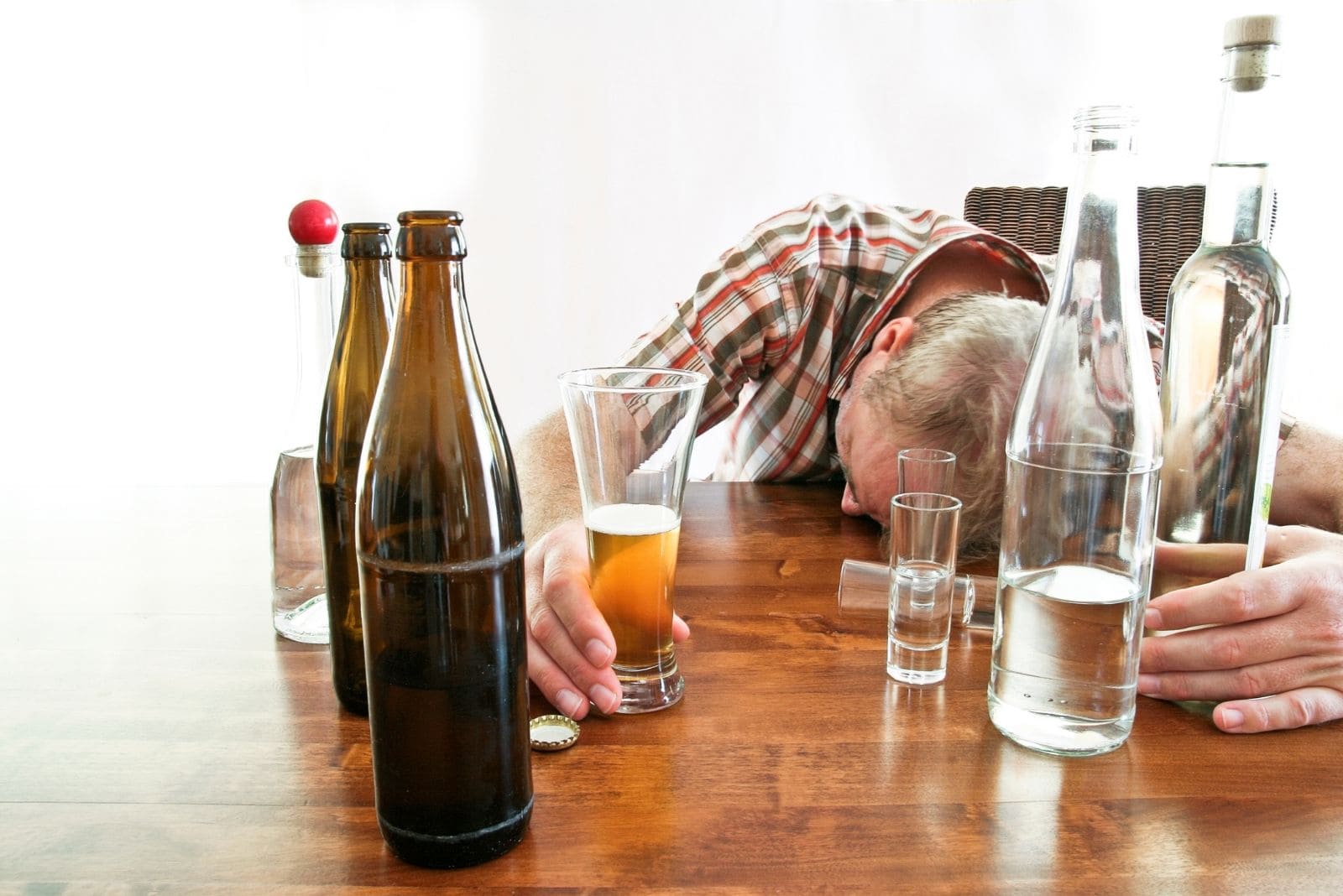
Usually, alcohol lovers have their own favorite alcoholic beverage and they stick to it.
You’ve probably seen it in movies multiple times where one character orders the same drink every single time at a bar.
In case their favorite drink is unavailable, they will not want anything else, and they will refrain from drinking altogether. But, someone who has an alcohol problem won’t do the same.
In case they are not able to enjoy their favorite drink, they will be satisfied with whatever they are offered.
It can be the cheapest beer or wine, but they simply won’t care as long as it’s alcohol. That is the main difference between a social drinker and someone struggling with alcohol addiction.
They always find a way to get alcohol
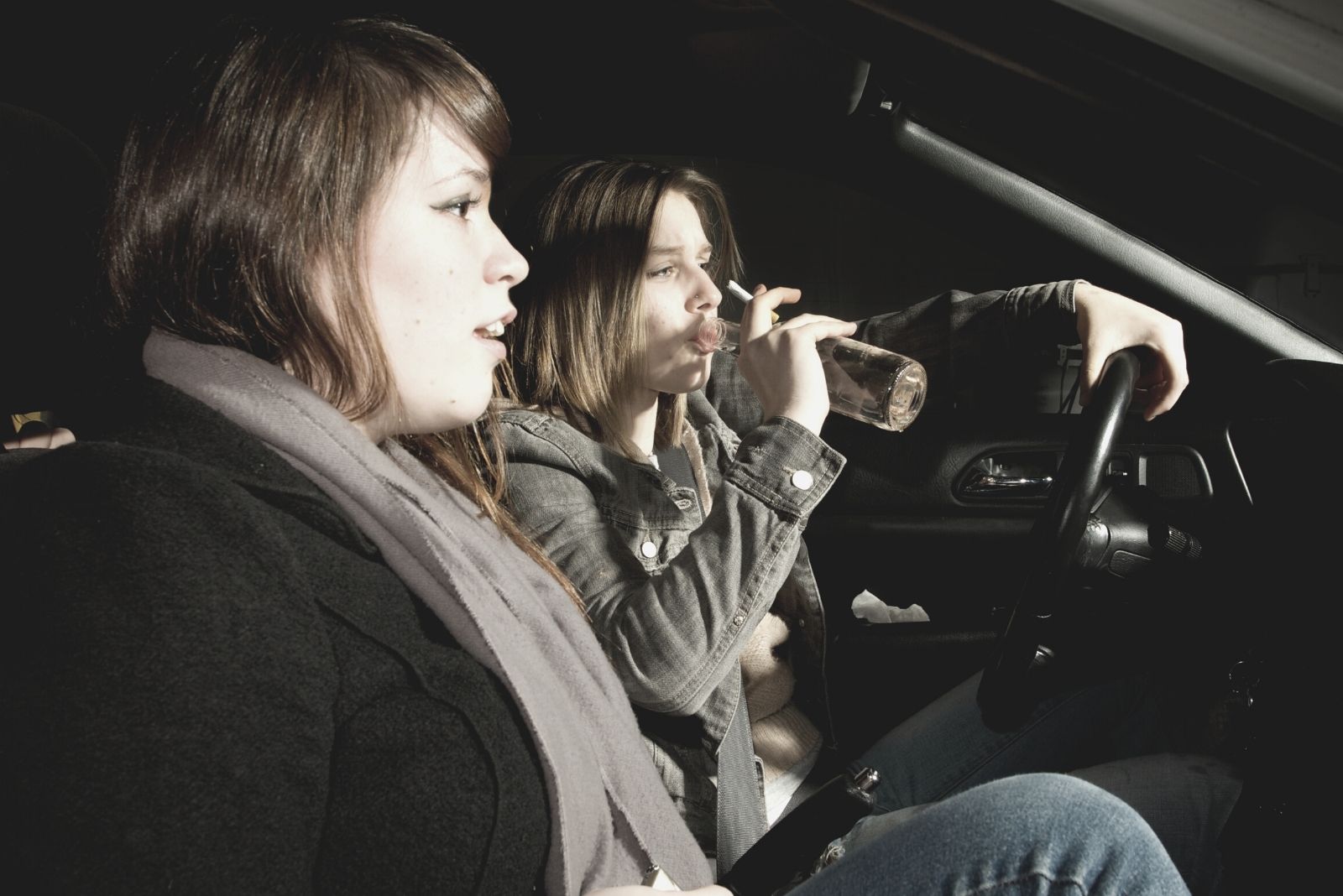
My favorite hoodie has a print that says: “Where there is a will, there is a way.” It took me a while to realize the truth of this statement.
If your partner somehow always finds a way to obtain alcohol, then they have a problem.
Do they tell you that you can’t go to dinner because they don’t have enough money, but you’ve noticed that they always have enough to get some alcohol?
When they need to decide between buying two things, do they always choose alcohol? If yes, then you know that drinking is their main priority.
See also: 5 Warning Signs You Are Dating A Toxic Man
They have a family history of alcoholism

Does your partner have a family history of alcoholism, opioid dependence, drug addiction, or something else?
Children who grow up with alcoholic parents are at a higher risk of developing alcohol addiction.
Family members play an important role in every child’s development. Children mostly learn by observing their parents, and any negative examples can greatly influence the way they will behave as future grownups.
My friend was dating an alcoholic in recovery and she said that his parents were struggling with alcohol addiction as well.
If you know that you’re dating the child of an alcoholic, chances are they will become alcoholics themselves. However, this is not necessarily the case.
3 Ways Alcoholism Can Impact Your Relationship
Codependency

Alcoholism can impact your relationship in so many ways, and the most common one is codependency. If your partner has a problem with excessive drinking, you will be concerned about their well-being.
Overly worrying about their well-being results in neglecting your own needs, and soon, you will find yourself being trapped in a codependent relationship.
Here are some questions that you need to ask yourself in order to be sure if this is happening to you:
• Are you more focused on meeting your partner’s needs than your own?
• Are you constantly dealing with the same problems and you still don’t see any progress?
• Are you worried about how they might react and what might happen to them if you decide to leave them?
• Do you think your self-esteem depends on their perception of you?
• Is helping them interfering with your personal life?
If your answer to the majority of these questions is yes, then you might be in a codependent relationship.
While it is humanly to help your partner if they’re struggling with addiction, still, this doesn’t mean that you should put your life on hold for them.
Reciprocal drinking

Spending time with a partner who has an alcohol problem can negatively reflect on the other person.
It is okay to drink with your partner from time to time, but if you’re doing it constantly, this is not a good sign.
Many people are not even aware of the fact that they themselves have become heavy drinkers because of their partners. Needless to say that this can negatively affect both your mental and physical health.
If your partner persuades you that you should drink with them even when you’re not in the mood for that, this is a huge problem (especially if you’re gullible by nature).
Destructive long-term relationships

Being in a long-term relationship with an alcoholic feels like you’re on an emotional roller-coaster. Their drinking habits and unhealthy choices can greatly affect the quality of your life.
Alcoholism is closely connected with mental illnesses, low self-esteem, anxiety, and depression. It is not just drinking in itself that represents a problem, but the biggest issue is all of the underlying issues that need to be dealt with.
If your partner is not ready to make the decision to stop drinking, there’s not much you can do about it on your own, which can be really frustrating in the long run.
See also: 10 Signs You Need To Put Dating And Relationships On Hold
If You’re Dating An Alcoholic, Here’s What You Can Do About It:
Approach your partner about their drinking problem

Don’t judge them and don’t yell at them, but politely approach your partner about their drinking problem. Do it when they are sober because there will be no effect if you decide to talk to them when they’re still under the influence of alcohol.
And, don’t just tell them: Stop drinking! This will not help them, but will only make things worse (especially if you’re dating someone with anxiety).
Avoid any kind of conflict or imposing opinions because this will only make them even more frustrated and confused. The last thing you need is to experience a power struggle in a relationship.
Instead, focus on expressing concern about their health and their overall lifestyle.
Encourage them to get the help they need

If your significant other is dealing with substance use disorder, the most important thing to do is encourage them to seek help. This is the most difficult stage in every addiction.
If you tell someone that they’re an alcohol addict, they will tell you this: I’m not, I can stop drinking whenever I want to. The majority of them believe that this is the truth, but often, it isn’t.
The first step to starting addiction treatment is admitting that they have a problem.
You can tell them whatever you want, but if they themselves don’t believe it, you will not be able to help them. The same thing applies to drug addicts.
When they accept the fact that they have a problem with excessive alcohol consumption, then they will be ready to start treating it as such.
Here are some ways to help a person who is struggling with alcohol addiction:
• support groups
• recovery helpline
• alcohol treatment centers (rehab centers)
Help is often just a phone call away. Many treatment facilities offer the popular 12-step program, but also make sure to ask others about their experience regarding alcohol addiction.
Every help and piece of advice is more than welcome when dating an alcoholic in recovery.
Evaluate your own role in encouraging their behavior

Do you think that you’re subconsciously supporting their alcohol abuse?
If you’re making excuses for their behavior, giving them money in order to support their addiction, or doing similar things, then you’re actually encouraging their addiction.
That is why it is important to evaluate your own role in encouraging their behavior. Often, people are not even aware that they’re helping their partner drink more instead of helping them to quit drinking.
Also, do you think you’re forcing them to do things that they don’t want to do? They might start drinking because they’re not ready for a relationship right now, but you’re being needy or nagging them.
Think about all that and evaluate in which ways your behavior might influence theirs.
If your partner refuses help, consider staging an intervention

In case your partner refuses help, consider gathering their friends and family for the sake of staging an intervention.
Let your partner know that you are all concerned about their mental and physical health, and that they should seek help.
Don’t do it in a forceful way, but show them how much you care about them.
When they realize that so many people are worried about them, they will be motivated to start doing something about it.
Conclusion
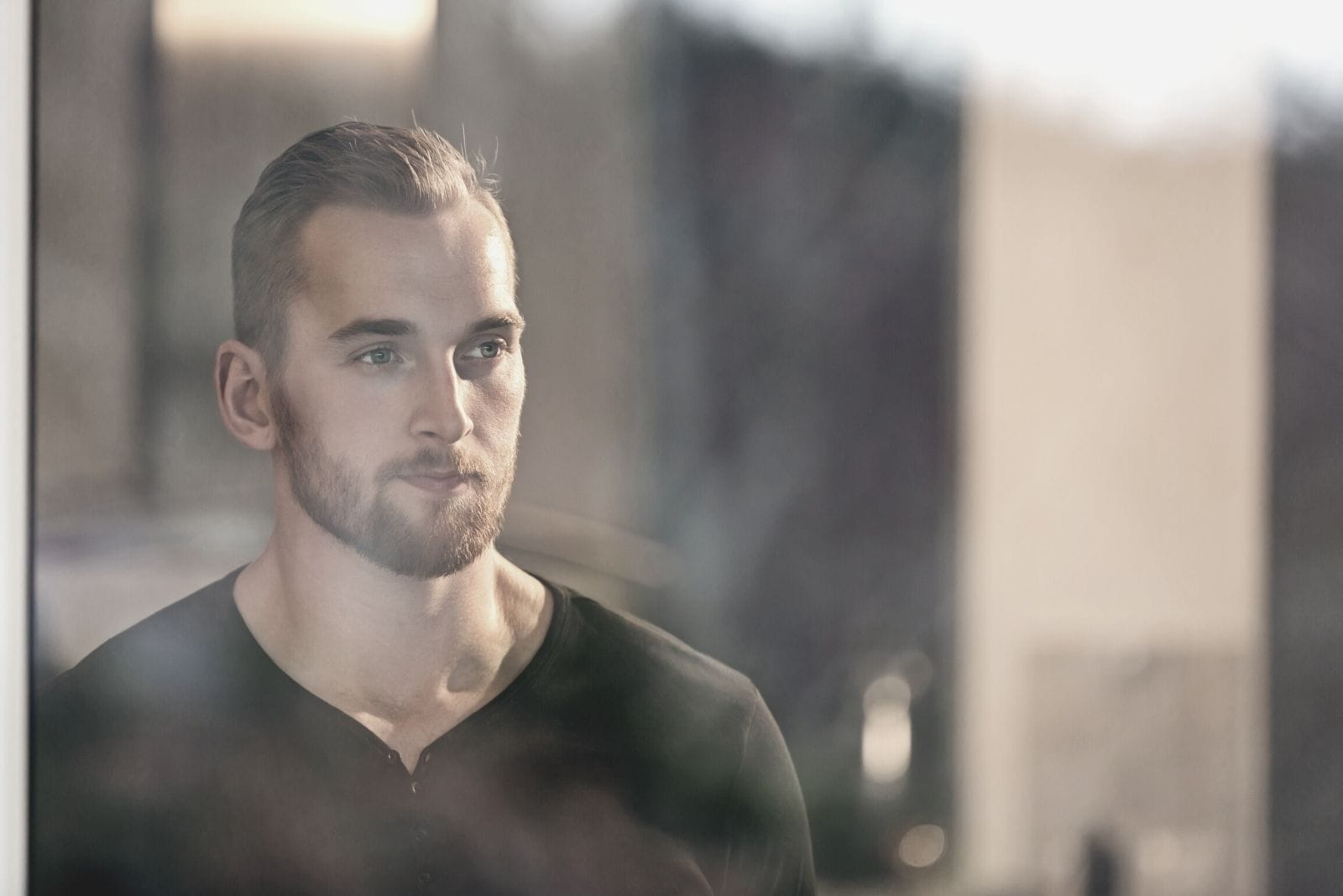
Excessive alcohol consumption (if not treated) can be a huge burden in a relationship and it can lead to many complications.
If your partner is struggling with alcohol addiction, encourage them to get the help they need.
From mental health issues to having a tough childhood, there are many causes of alcoholism and the most important thing to do is address these underlying issues.
Dating an alcoholic in recovery won’t be easy, so they will need all the support they can get from their partner, family members, and close friends.
Remember, everything will fall into place. You just need to be patient and believe it.

